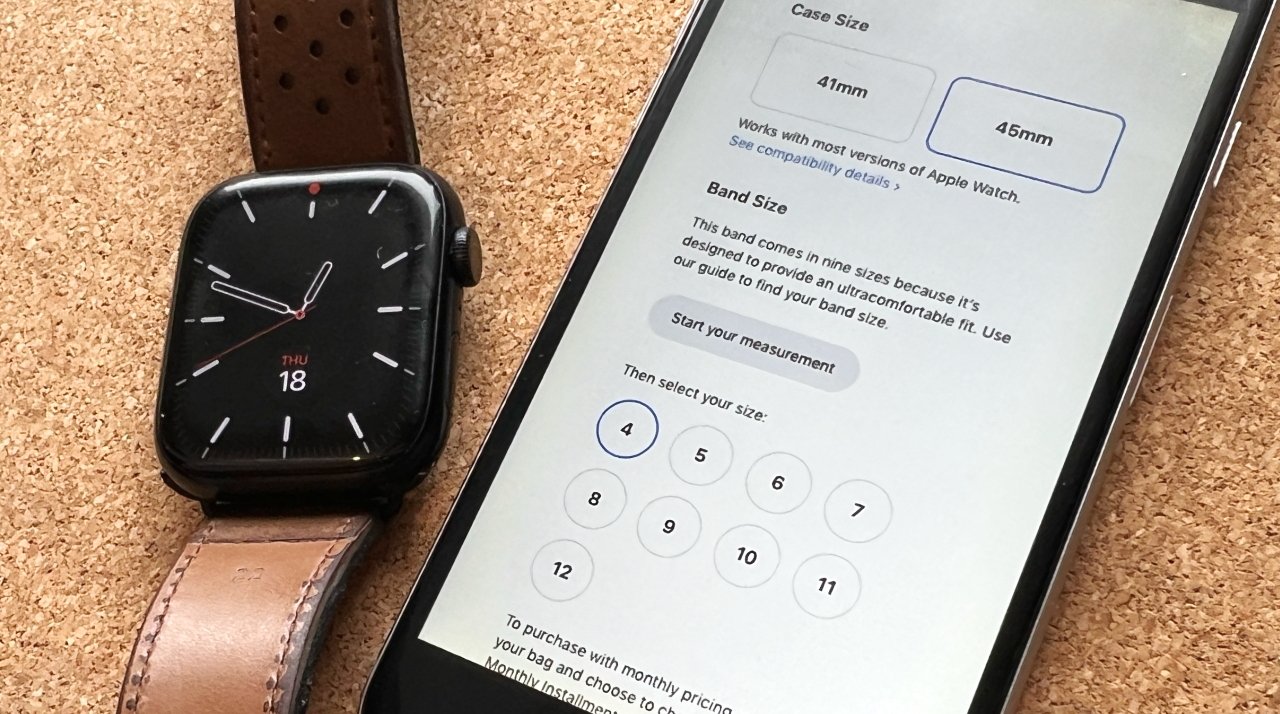There's got to be a better way to find the right Apple Watch band size for your wrist than trying out countless ones, or printing out paper guides -- and Apple thinks it has the answer.

How it used to be when finding the right size Apple Watch band was complicated
The Apple of today is very different from when it used to stick to Steve Jobs's famous quadrant of laptop, desktop, consumer, and professional computers. And perhaps the single clearest indicator of that is the single most confusing choice buyers have to make -- which Apple Watch band to get.
Apple's online store has seemingly countless combinations of Apple Watch Series, Apple Watch types, and Apple Watch bands, and that's probably never going to go away. But there is one thing that Apple thinks it can improve, and that's the confusion over which size band you need for your wrist.
You're still going to be on your own over whether you want the smaller or larger Apple Watch model, but size is different. Apple has simplified this over the years, seemingly chiefly by preferring to sell looped bands rather than ones with buckles at specific sizes.
Nonetheless, certain ones such as the "49mm Natural Titanium Milanese Loop," have to come in three different sizes. And even with the many different Sport or Alpine loops, many are listed as "One Size (Fits Most)," despite the actual size varying.
For instance, right alongside that "Fits Most" line, an Apple Watch band may be described as fitting 150-190mm wrists. But it could instead be described as fitting 145-220mm ones.
It's still better than when some Apple Watch bands had to come in nine different sizes. For several years, Apple Watch buyers online had to go through a "Start your measurement" process, which was particular un-Apple-like in its elegance or simplicity.
One was to download a printable tool and then wrap it around your wrist. " For a more accurate measurement," Apple used to helpfully say, "you can use a piece of sticky tape to hold the wider end in place."
The other option was to use a measuring tape and a crafter's collection of "paper, pen, ruler, sticky tape, and scissors." Again, though, you end up cutting out a paper band.
Even has Apple has managed to consign this mess to history, it has been looking to go much further and use technology to give accurate wrist measurements. First applied for in 2022, a patent named "Touchless Wrist Measurement" has now been granted.
"Existing measuring techniques have various disadvantages with respect to measuring a person's wrist," says Apple in the patent. "Such techniques may require special measuring equipment such as a body measuring ruler or tape that require contact with the person's wrist and that may be cumbersome to use and subject to error."
The patent proposes instead that either the user or Apple Store staff use a scanner, which could be an iPhone "that includes [a] depth sensor."
"[The] electronic device is placed on a surface with the depth sensor facing up," says Apple, "and a user may rotate their hand/wrist above the electronic device while at least two depth map images of the wrist are captured during a wrist scanning process."
"[The] depth data includes at least two depth map images of a wrist from different angles sufficiently separated to accurately represent the wrist's circumference," continues Apple. "For example, one of the depth map images of the user's wrist may be captured with the palm facing the depth sensor and the other of the depth map images of the user's wrist is captured with the palm facing to the side (e.g., approximately 90 degree rotation)."
Detail from the patent showing one system for scanning a user's wrist
As yet another example of how Apple is far from behind the industry on artificial intelligence, this patent proposal includes specific use of machine learning. "[The] depth data is input into a machine learning (ML) model that outputs a measurement corresponding to circumference of the wrist and/or a watch band size," says the patent.
There's a bit more to it, and the patent application runs to over 9,000 words of different configurations of sensor. But the ultimate aim is to take the measurements and then, "a watch band size recommendation is provided based on the output."
The patent is credited to six inventors, including four who have previously worked on AR measuring tools for the Measure app.
